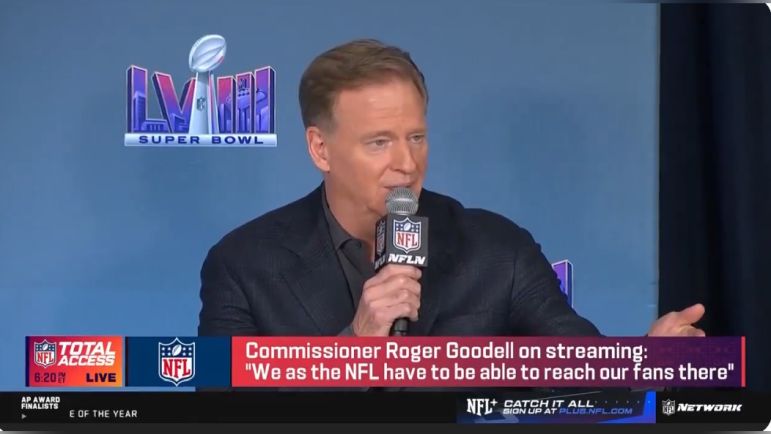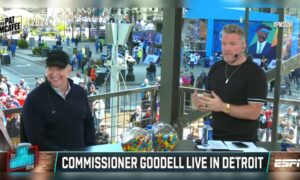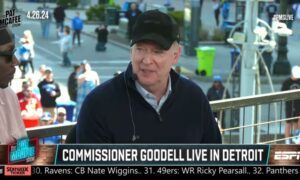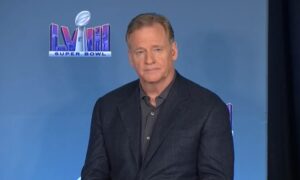Thursday night games are largely shown online. The NFL had its first playoff game as an exclusive streaming event. It leaves only one logical conclusion – soon enough, the Super Bowl will be a paid event, right? For Roger Goodell, that’s one line he says he won’t cross.
In his yearly State of the NFL question and answer session, one pushed to Monday and became invite-only, drawing plenty of criticism, Goodell was asked if he’d ever consider making viewers pay to watch the Super Bowl.
“Certainly not in my time,” Goodell told host Tracy Wolfson, via Awful Announcing. .”I still believe, and even on some of the paid services, one of the secrets of our success is we are really committed to broadcast television. As I said, 90 percent of our games are on broadcast and free over-the-air television. I think it’s the reason why you’ll see over 200 million people watch this game here in the United States because it’s on broadcast television and the broadest possible platform.”
While there may be positives to putting the Super Bowl behind a streaming service and paywall, the negatives far outweigh the gains. Plenty of revenue can be made from making fans sign up and watch but that money would be countered by advertising costing less, since it would be seen by a smaller audience. And the negative pushback the league would receive would be fierce. Plenty of fans were unhappy about this year’s Wild Card game between the Kansas City Chiefs and Miami Dolphins being shown exclusively on Peacock, NBC’s streaming platform. The Steelers’ Wild Card game nearly was placed there had the Miami Dolphins beaten the Buffalo Bills in the regular season finale.
Two of Pittsburgh’s regular season games, Thursday night contests against the Tennessee titans and New England Patriots, were shown exclusively on Amazon Prime. The only exception were local markets, which still aired the games on television.
Though Goodell was firm in his belief the Super Bowl won’t become a premium model, he touted the success of the exclusive playoff broadcast.
“Understand where the media landscape is going. It’s changing faster and deeper. Consumers are moving off of paid television services and going into digital streaming services and platforms. And we as the NFL have to be able to reach out fans there. One of the most positive things about the Peacock game wasn’t just the fact it outdrew the broadcast audience a year earlier…but it also reduced our average age of the audience by almost ten years. Youth audiences are going to those platforms and those apps.”
With rising costs and more consumer-choice, many have cut the cord and ditched traditional cable packages. A trend that will only continue with time. Goodell is attempting to walk the delicate line between the league’s model of the last 60 years, traditional television, in a new-media world. He remained committed to keeping the NFL accessible for the public.
“We’ll see the Super Bowl continue to be on the broadest platform. We’ll continue to see the NFL on the broadest possible platform.”
Of course, would the NFL really be hurt by making the Super Bowl a streaming/exclusive event? Sure, there would be media pushback. But the league has seemingly gotten too big to fail. If football is on, people watch. No other sport and virtually no other show has that kind of power.
While there would be a PR storm to weather, the league would survive and probably find a way to thrive, just as it has every year. So while Goodell might be taken at his word, it’s plausible that at some point in the coming decades, the only way to watch the Super Bowl will be to log in for it.








